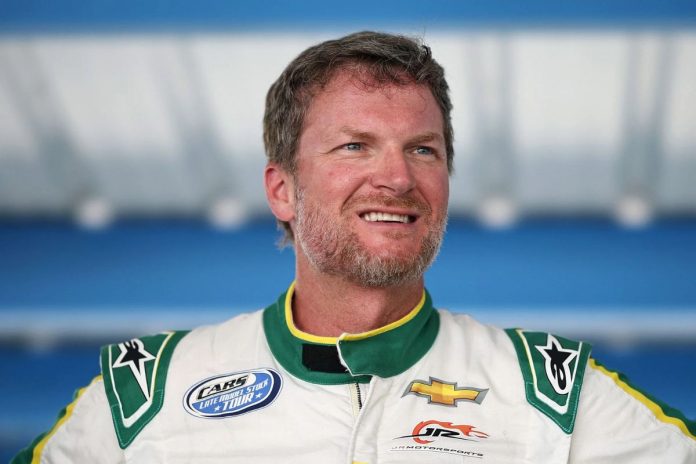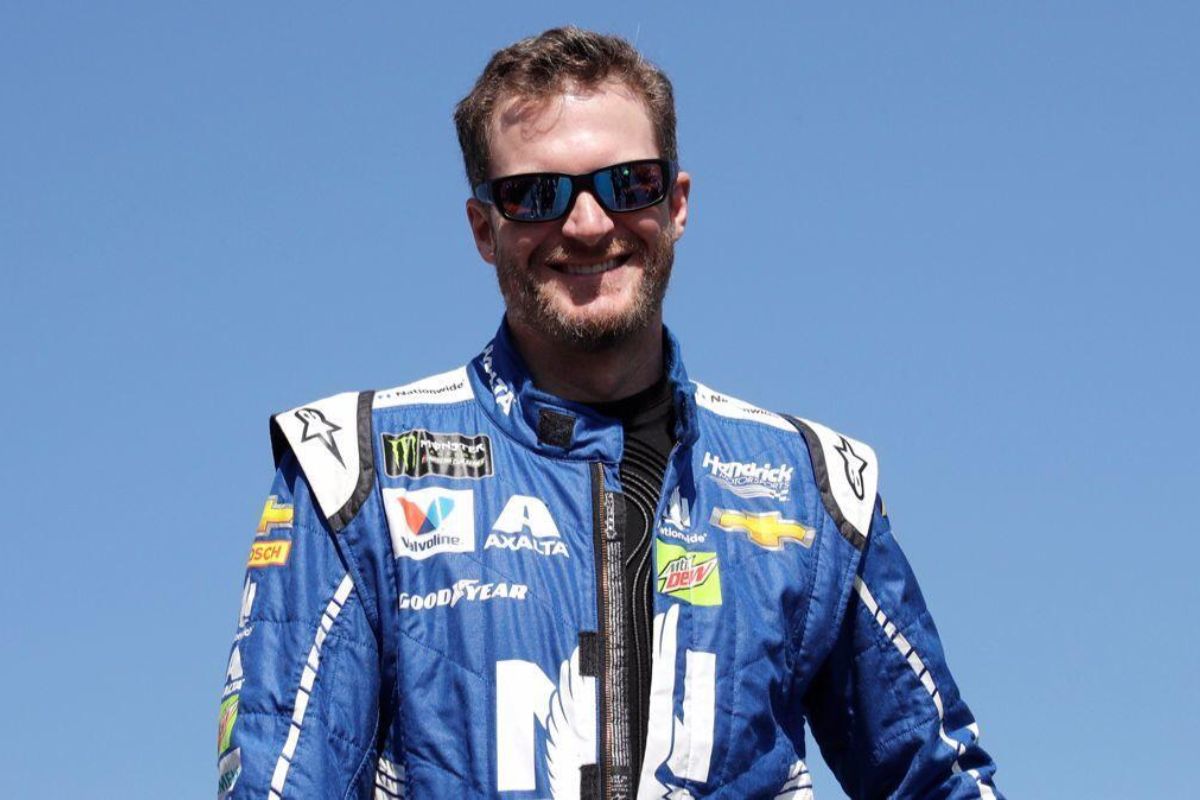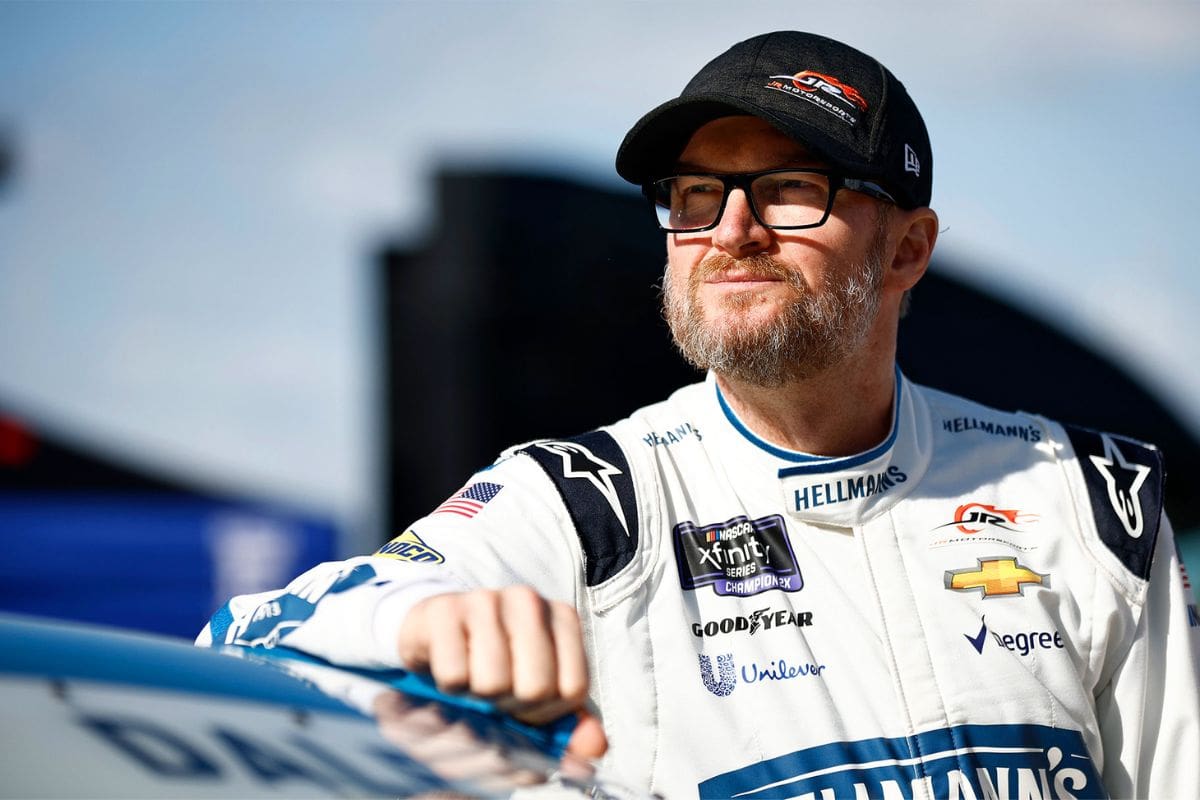Dale Jr. Vs. NASCAR SVP: The ongoing debate between Dale Earnhardt Jr., a revered figure in the NASCAR community, and NASCAR’s Senior Vice President, Elton Sawyer, has brought to a critical questions about the future trajectory of NASCAR. At the heart of their disagreement is the issue of reduced practice times—a cost-saving measure that Earnhardt argues may compromise driver performance and safety standards. As NASCAR attempts to navigate the through balance between financial sustainability and maintaining a high-quality racing experience, this discord highlights the broader implications for the sport’s strategic direction and its stakeholders.
Key Takeaways
- Dale Jr. demands for increased practice time to improve safety and performance in modern complex NASCAR vehicles.
- Elton Sawyer, NASCAR SVP, counters by emphasizing the financial and logistical challenges of extended practice sessions.
- The debate highlights differing opinions on balancing cost-saving measures with race preparedness among stakeholders like Kyle Larson.
- Financial implications include impacts on team budgets and the broader strategic financial management within NASCAR.
- Both parties discuss the importance of strategic resource allocation and innovation in maintaining NASCAR’s competitive integrity and fan engagement.
Dale Jr.’s Demand for Increased Practice Time
While Dale Earnhardt Jr. has long been known for his racing skills, his recent request for extended practice sessions highlights a significant concern regarding driver preparation and safety within NASCAR. Earnhardt’s call for longer practice times is not merely a personal preference but stems from a deep understanding of the sport’s evolving dynamics and the intensified need for driver experiences to diverse racing conditions.
“I know that an executive can sit down with me and say, ‘Here it is, right here: numbers. We are saving money.’ But I know what he’s not telling me is that if I turned practice on. If it was a switch, and I turned it back on. He’d find a way to find that damn money to go practice and he will save up somewhere else.”
“If things got tighter we (JR Motorsports) would find a way to make it work.”-Dale Jr
Analyzing this demand, it’s vital to contemplate the technical aspects that justify such a requirement. Modern NASCAR vehicles are complex machines that are continually updated with new technologies. Each update, while potentially improving performance, also alters the vehicle’s handling and response. Extended practice sessions would provide drivers with the necessary time to adapt to these changes.
Elton Sawyer’s Response to Dale Jr.’s Comments
Elton Sawyer, NASCAR’s Senior Vice President of Competitions, joined Dale Earnhardt Jr. on the ‘DJD: Reloaded’ podcast to thoughtfully address the latter’s concerns about increasing practice times for drivers. Sawyer aimed to clarify the intricacies of NASCAR’s current practice schedules, emphasizing a well-rounded approach between track time and logistical feasibility.
“Great point. I mean, he wears and has worn all the different hats. He’s been a driver, and he’s now a very successful car owner. He’s also worked on the media side with his broadcast, and what we’re doing here with Dirty Mo Media.” Agreeing “hundred percent” with Junior’s feelings, Mr. Sawyer also states, “If there’s a dollar laying there, then teams are gonna figure out a way to spend it.”
“But my counter to that would be, are we 100% sure that when we go down this path because it will increase costs, It will do that, and they are gonna find the money somewhere, I totally agree… But will it increase the value by adding that content?”-Sawyer
Sawyer highlighted several key areas where NASCAR’s strategic objectives intersect with drivers’ needs for practice. He stressed the significance of maintaining a competitive balance while also considering the financial and operational impacts of any changes to practice times. The conversation was deeply analytical, focusing on the broader implications of such changes for the sport as a whole.
Debate Over Practice Times
Building on the discussion of logistical and financial aspects, the debate over practice times continues to evoke varied opinions among key stakeholders, including fans and professional drivers like Kyle Larson. The issue lies in the balance between cost-saving measures post-COVID-19 and the qualitative impacts on race preparedness and driver performance.
Dale Jr.’s pointed commentary on his podcast highlights a significant tension. He acknowledges the clear financial rationale presented by NASCAR executives for reducing practice times—evidence in spreadsheets and budgets that purport cost efficiencies. However, Dale Jr. suspects these financial justifications mask a deeper capability and flexibility in budget reallocation that could support more extensive practice sessions if prioritized.
This skepticism is not without merit and invites a deeper inquiry into the elasticity of NASCAR’s budgeting decisions. If practice times are indeed a lever that can be adjusted based on financial expediency, one must question whether the current allocations best serve the sport’s competitive integrity and safety.
Elton Sawyer’s Perspective
Reflecting on Dale Jr.’s concerns, Senior Vice President of Competitions Elton Sawyer provided a balanced perspective that acknowledges the multifaceted nature of NASCAR’s financial decisions. He recognized the versatility and experience Dale Jr. brings to the table, appreciating his roles as a driver, owner, and media personality. Sawyer emphasized the inherent adaptability of NASCAR teams when faced with financial constraints, aligning with Dale Jr.’s assertion that teams find ways to optimize their expenditures efficiently.
“Will it increase the value of our product?”
“if it does,” NASCAR is “going to figure out a way to make it happen. As we did when we were shut down because of COVID.“ -Sawyer
- Resource Allocation: Teams are adept at strategically allocating resources to optimize performance within budget constraints.
- Innovation under Challenge: Financial challenges often spark innovation, leading to more cost-effective solutions without compromising quality.
- Versatility of Leadership: Leaders like Dale Jr., who have diverse experiences within the sport, are instrumental in guiding their teams through financial challenges.
- Economic Realism: Acknowledging that every dollar has potential, teams are scrutinized on how they spend and invest in technology and personnel.
- Long-term Planning: Effective financial management involves foresight and planning, ensuring sustainability even when the economic landscape shifts.
Further Debate
While acknowledging the financial strategies outlined by Elton Sawyer, the debate intensifies around the practical implications of reduced practice times on NASCAR’s competitive integrity and general worth. The discussion, rekindled by Dale Earnhardt Jr. and Chase Elliott, oscillates between the necessity of practice for professional racers and the potential cost implications of increasing such periods.
Dale Jr.’s perspective, shaped by his experiences and observations, particularly the performance intricacies observed at Bristol, highlights a critical aspect of the debate. The balance between adequate preparation time and the evolving demands of Next-Gen cars remains delicate. This duality is further complicated by the viewpoints of champions like Jimmie Johnson and Chase Elliott, each bringing their unique experiences into the discussion.
News in Brief: Dale Jr. Vs. NASCAR SVP
The ongoing debate between Dale Earnhardt Jr. and NASCAR’s SVP Elton Sawyer highlights a complex dilemma facing NASCAR: balancing cost-effectiveness with the best possible driver performance and safety. Earnhardt Jr.’s demand for increased practice times brings attention to concerns over driver preparedness and safety, while Sawyer’s stance emphasizes financial challenges. This clash covers broader tensions within the sport regarding its future trajectory, financial sustainability, and the maintenance of a competitive, yet safe, racing environment.
Our Reader’s Queries
Q. Will Dale Jr. be racing in 2024?
A. Dale Earnhardt Jr. is set to make a return to the NASCAR Xfinity Series in 2024, further solidifying his remarkable streak of competing in at least one race annually in the series since 2001. A revered figure in the sport and a NASCAR Hall of Famer, Earnhardt’s comeback adds yet another chapter to his storied career. He will take the wheel of the No. [Car Number], igniting excitement among fans and reigniting memories of his past triumphs on the track.
Q. Is Dale Jr. leaving NBC Sports?
A. In a shift within the broadcasting realm, Dale Earnhardt Jr. is bidding farewell to NBC and embarking on a new journey with emerging players Amazon Prime Video and Warner Bros. This departure marks a significant transition for the beloved racing figure, whose insights and commentary have long been cherished by fans. As he ventures into uncharted territory, all eyes are on Earnhardt Jr. as he prepares to lend his expertise to these burgeoning platforms, signaling a new chapter in his career.
ALSO READ: Dale Earnhardt Jr. Faces Fan Pressure: Ryan Sieg’s Endorsement Debate




